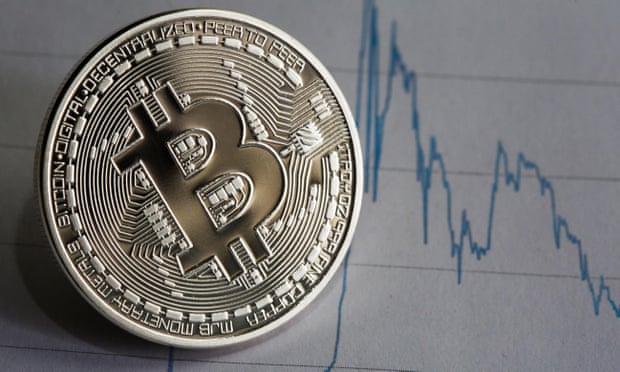The price of the virtual currency bitcoin has broken the $8,000 barrier for the first time, prompting speculation that it could soar past $10,000 by the end of the year.
The rise means one unit of the world’s first major cryptocurrency is now valued at more than six times an ounce of gold, traditionally seen as a safe-haven investment in times of economic turmoil.
Bitcoin’s value is regularly volatile but despite several steep falls this year it has now surged tenfold from around $800 at the beginning of 2017 to more than $8,000 in the early hours of Friday morning.
Its latest increase, a month after it broke through $5,000, is linked to speculation about the likelihood of a “hard fork” to create a spin-off currency.
Expectations of a fork tend to boost bitcoin because when it happens, existing holders gain some of the new currency for free.
Bitcoin’s market price has been volatile lately after the cancellation of a technical upgrade known as SegWit2x, designed to increase transaction speeds.
According to the cryptocurrency exchange CoinBase, a large number of bitcoin “miners” – people who provide the computational power that underpins bitcoin in exchange for the chance of financial reward – could now go ahead with their own upgrade. There is speculation that this could trigger a fork.
Lukman Otunuga, a research analyst at the foreign exchange broker FXTM, said: “I find it remarkable and somewhat frightening how, no matter how much bitcoin is pummelled by sellers, it simply bounces back even stronger.
“Will bitcoin hit $10,000 before year end? This is the question every investor is asking.”
Nicholas Gregory, chief executive of the cryptocurrency business CommerceBlock, said there was more to bitcoin’s rise than speculation about a fork.
“The cryptocurrency’s momentum is being driven by a growing sense among speculators that the banking industry is firmly in its crosshairs,” he said. “Increasingly, traders and speculators are looking at banks as Blockbuster Video and bitcoin as Netflix.”
Q&AWhat is bitcoin?
Show

Bitcoin is a 'cryptocurrency' – a decentralised tradeable digital asset. Invented in 2008, you store your bitcoins in a digital wallet, and transactions are stored in a public ledger known as the bitcoin blockchain, which prevents the digital currency being double-spent.
Cryptocurrencies can be used to send transactions between two parties via the use of private and public keys. These transfers can be done with minimal processing cost, allowing users to avoid the fees charged by traditional financial institutions - as well as the oversight and regulation that entails. The lack of any central authority oversight is one of the attractions.
This means it has attracted a range of backers, from libertarian monetarists who enjoy the idea of a currency with no inflation and no central bank, to drug dealers who like the fact that it is hard (but not impossible) to trace a bitcoin transaction back to a physical person.
The exchange rate has been volatile, with some deeming it a risky investment. In January 2021 the UK's Financial Conduct Authority warned consumers they should be prepared to lose all their money if they invest in schemes promising high returns from digital currencies such as bitcoin.
In practice it has been far more important for the dark economy than it has for most legitimate uses. In November 2021 it hit a record high of more than $68,000, as a growing number of investors backed it as an alternative to other assets during the Covid crisis.
Bitcoin has been criticised for the vast energy reserves and associated carbon footprint of the system. New bitcoins are created by “mining” coins, which is done by using computers to carry out complex calculations. The more bitcoins that have been "mined", the longer it takes to mine new coin, and the more electricity is used in the process.
Bitcoin has proved particularly controversial, with financial pundits divided over its stability and long-term prospects. Jamie Dimon, the JP Morgan chief executive, has branded it a “fraud” fit only for drug dealers, murderers and people living in places such as North Korea
China banned bitcoin exchanges this year, sending the currency’s value tumbling more than 40% from $5,000 to below $3,000.
Vladimir Putin, the Russian president, has called for regulation of cryptocurrencies, saying their use “bears serious risks” such as money laundering, tax evasion and funding for terrorism.
Bitcoin was launched in 2009 after being invented by Satoshi Nakamoto, believed to a pseudonym for multiple developers. Within three years it had achieved parity with the dollar, and it has surged, amid periods of intense volatility, ever since.
